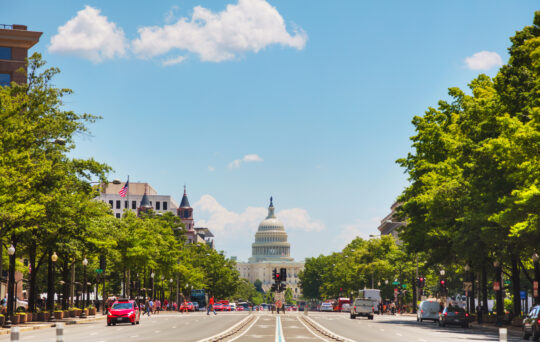By Deirdre Fernandes
Every spring, thousands of workers from Jamaica, the Philippines, and Mexico flood into New England, providing the backbone of the region’s summer economy. They wash dishes in clam shacks on the Cape, clean hotel rooms in Bar Harbor, Maine, and mow lawns from Rhode Island to New Hampshire.
But changes to the seasonal worker visa program, a logjam in the federal approval process, and the Trump administration’s sharp rhetoric about immigration have business owners across the region worried that they won’t be able to hire enough workers.
“We’re all fearful, based on personnel changes on the federal level, that they’re going to process applications less favorably,” said Sam Bradford, chief financial officer of Mac’s Seafood in Wellfleet. “Without this program, the tourism industry implodes.”
The seasonal worker program, called H-2B, has received far less attention in recent weeks than President Trump’s attempt to temporarily ban travelers from seven majority Muslim countries and his executive order expanding deportations of undocumented immigrants. The president also has called for changes to the skilled worker visa program, called H-1B, that supplies engineers and computer programmers to startups and tech firms from Silicon Valley to Kendall Square.
Seasonal businesses fear that the H-2B program for unskilled laborers could be next, even though the Trump Organization uses such workers at the president’s Mar-a-Lago Club in Palm Beach, Fla., and the Trump National Golf Club Westchester in New York.
In his postelection video message outlining policy plans for his first 100 days, Trump said he would direct the Department of Labor “to investigate all abuses of visa programs that undercut the American worker.”
While the Obama administration put tighter controls on the H-2B program, businesses worry that the political environment is turning more hostile under Trump. It is not yet clear what Trump’s call to overhaul the visa program might mean for seasonal immigrant workers.
“With the administration’s focus on immigration, what concerns me is these valuable workers programs are going to get caught up in the maelstrom of tighter border control,” said Steve Hewins, president of the Maine Innkeepers Association. In a meeting last week of the association’s board, there was little else on everybody’s mind, Hewins said.
The uncertainty is exacerbated by changes to the program last year. Following criticism from union leaders and immigration foes that the program was simply a way for employers to import low-wage workers — rather than hiring Americans at a living wage — the Department of Labor implemented changes. Before employers can hire H-2B visa workers, they must now demonstrate that they aggressively recruited US workers first and are paying seasonal foreign workers the prevailing wage in the region for that job.
And unlike in years past, when returning workers were not counted in the annual 66,000 visa cap, they are this year after Congress failed to pass an exemption.
That means that thousands of companies across the country are competing for the limited number of visas on a first-come, first-serve basis, raising fears that many will be shut out, said Patrick O’Neill, a partner at Public Strategies, a Washington-based lobbying group hired by New England companies to advocate on behalf H-2B issues.
In Maine, 10 percent of the 100,000 hospitality-based workers are in the United States on temporary work visas annually, primarily through the H-2B program, Hewins said. A historic 30-room inn in Bar Harbor serves as housing for foreign workers in the area, he said.
These jobs may have once been filled by college students, but times have changed. The tourist season now extends into early fall, when many students are back at school, and few of them are interested in scrubbing floors or standing in hot kitchens washing dishes for hours when internships and cashier jobs call, businesses said.
On the Cape, businesses are scrambling to come up with backup plans. Many are worried that they will blow through their overtime budgets this year, be forced to scale back on breakfast and lunch hours, or close earlier because they can’t find enough workers.
“Without this program, the tourism industry implodes.” said Sam Bradford, chief financial officer of Mac’s Seafood in Wellfleet. Mac’s Seafood has been bringing in about 100 foreign seasonal workers through the visa program since 2001 to staff the company’s restaurants, fish markets, and hotel, Bradford said.
Many of the workers return annually. Some spend the winter in Vermont ski resorts before traveling south to Mac’s for about seven months to work as cooks, housekeepers, and bartenders, supplementing the 200 American employees that the company hires each year.
Mac’s filed four separate applications for H-2B workers at the beginning of January with the Department of Labor. They have to certify the number of workers before applications move to the Department of Homeland Security for review and on to the State Department for issuance of a visa. The Labor Department has certified most of Mac’s workers, but the company still needs approval from the other agencies.
Natalee Harris cleaned drinking glasses at the Stratton Mountain Club.
Other companies haven’t received any word on their applications, said Jane Bishop, the president of Peak Season Workforce, a Mashpee business that helps companies navigate the visa process.
Of the 171 applications that the company has filed for summer workers, only 24 have been certified.
“This year is going to be a big problem,” Bishop said.
Witham Family Hotels in Maine is among the companies waiting to hear about its 100 temporary workers to staff the company’s nine hotels. Employees are hitting up friends and neighbors to see if they’re interested in filling in and are talking to local colleges about potentially allowing some hospitality students to work into the fall, said Terri Swanson, Witham’s human resources director.
“It’s all safety-net things we’re doing,” she said.
The situation is further aggravated by the falling unemployment rate nationwide. New England states, in particular, have some of the lowest jobless rates in the country, according to updated numbers from the Labor Department. Unemployment in Massachusetts is at 3.1 percent; Vermont 3.2 percent; and Maine 3.8 percent.
Last week, the Labor Department reported that unemployment claims dropped by 19,000 from 242,000 the previous week to the lowest level since March 1973, when Richard Nixon was president.
Mic Clark, the executive sous chef at the private Stratton Mountain Club in Vermont, said hiring staff for its three restaurants to work for just a few months a year is a struggle. So, three years ago the club turned to H-2B workers, and now his sushi chef is from Mexico and many of his servers are Jamaican.
“There are born and raised Americans who will travel from resort to resort. They’ll work here and go to Alaska,” Clark said. “But it’s getting rarer and rarer to find people who want to do that.”
Department of Labor officials acknowledge that they are seeing a surge in applications, with 3,000 requests coming in during the first week in January — a 93 percent increase compared with last year.
The agency is putting its available staff and resources toward processing the applications, according to its website.
Labor Department officials said they have made no changes to the review process under the Trump administration. The program continues to operate under rules established in April 2015, said Egan Reich, a spokesman for the Labor Department.
Representative Bill Keating, a Democrat who represents Cape Cod, said the delays may be due in part to the changes in personnel during the hand-off in presidential administrations.
Keating said he expects Congress to try again in April to insert a returning worker exemption to the next funding bill. But its fate remains uncertain.
Some worker advocates don’t want to see the program expand by restoring the exemption for returning workers. They say it’s still flawed, leaving foreign workers unprotected.
“There are major reforms that are needed to the program” said Daniel Costa, director of immigration law at the Economic Policy Institute in Washington. “I don’t think it’s a smart idea to expand.”
And while unemployment is low, there are still millions of Americans looking for work, he said.
For now, many foreign workers who rely on the program are in limbo.
Neily Bowlin, 42, and his wife, Patricia, from Jamaica, are in their final weeks of working at Stowe Mountain Resort as cooks. They had planned to travel down to the Cape in April for the summer season, but haven’t heard back about their visa status.
Bowlin has worked on the Cape through the visa program since 1997 and it has helped ensure that his 15-year-old son in Jamaica will have money to go to college.
“You have no idea where the chips are going to fall,” Bowlin said. “It’s the biggest fear ever; this is our career, this is our way of life.”

House Republicans are discussing options for providing aid to Israel and Ukraine, and several new chairs have taken the subcommittee gavels at the House Appropriations Committee.
Read More
This week, House Republicans will select a new chair of the Appropriations Committee and will deliver to the Senate articles of impeachment against Homeland Security Secretary Alejandro Mayorkas.
Read More
The gavel will be changing hands soon at the House Appropriations Committee, the Select Committee on the Chinese Communist Party, and possibly the Rules Committee.
Read More